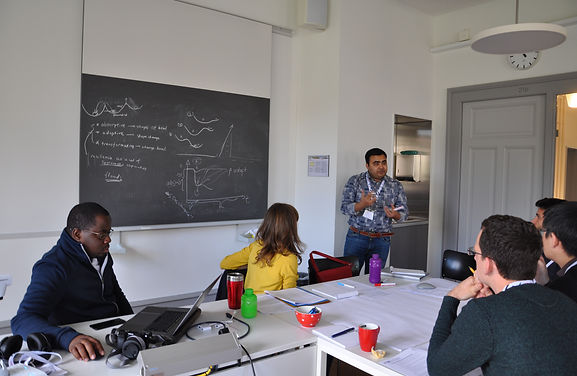
6th International EcoSummit Congress:
EcoSummit 2020
(postponed to 2021 due to coronavirus spread)
Building a sustainable and desirable future: Adapting to a changing land and sea-scapes
14-18 June 2021 | Gold Coast, Queensland, Australia
Analysis and Modelling Social-Ecological Systems for Sustainable Development: Challenges and Opportunities
Md Sarwar Hossain1, Md Nurul Amin2, Sylvia Szabo3, Lisa Lobry de Bruyn2, Chinwe Ifejika Speranza1
1. Institute of Geography, University of Bern, Switzerland
2. School of Environmental and Rural Science, University of New England, Australia
3. Department of Development and Sustainability, Asian Institute of Technology, Thailand
Understanding human-nature interactions is a prerequisite for sustainable development, and for adapting to changing land- and seascapes, and for working towards a desirable future. Sustainability requires a critical analysis of both social and ecological components and exploring their dynamics (feedbacks, nonlinearity) across multiple scales. Failure to recognize such complex dynamics has led to unsustainable development pathways, accompanied by environmental and social challenges, such as climate change, biodiversity loss, resource degradation, unsustainable livelihoods and equity. Despite the recognised significance of SES, progress in the operationalization of complex dynamics (including cross-scale dynamics) of a SES through innovative tools and methods remains slow, especially for a desirable SES trajectory.
In this session, our main objective is to discuss contributions dealing with the opportunities and challenges in analysing and modelling SES. The session is expected to include, but not necessarily be limited to, the following topics:
• Long-term trends and transitions in interactions between SES
• Conceptualization and operationalization of SES concept for advancing sustainable development agendas (e.g. SDGs)
• Modelling SES dynamics for sustainable development, e.g. safe and just operating space, tipping points.
• Sustainable management of land, water, and agricultural systems, as well as sustainable livelihoods and wellbeing.
• Challenges (e.g. data availability) and opportunities of using SES analysis for SDGs
We welcome contributions addressing these points.
May 6-8th, 2019 at the University of Bern, Bern, Switzerland
Scope of the workshop
Natural disasters consist of human and natural components that are interconnected. While progress has been made to mitigate and adapt to natural hazards, much of the existing research lacks interdisciplinary approaches that equally consider both natural and social processes. More importantly, this lack of integration between approaches remains a major challenge in developing disaster risk management plans for communities. The proposed early career researcher workshop on Modelling risk and resilience in human and natural systems aims to:
-
Establish the progress made in modelling risk and resilience to natural hazards,
-
Identify remaining challenges, and
-
Discover opportunities for future research.
_JPG.jpg)

Global Land Programme: 4th Open Science Meeting
An introduction to system dynamics for understanding the sustainability challenges of land system transformations

